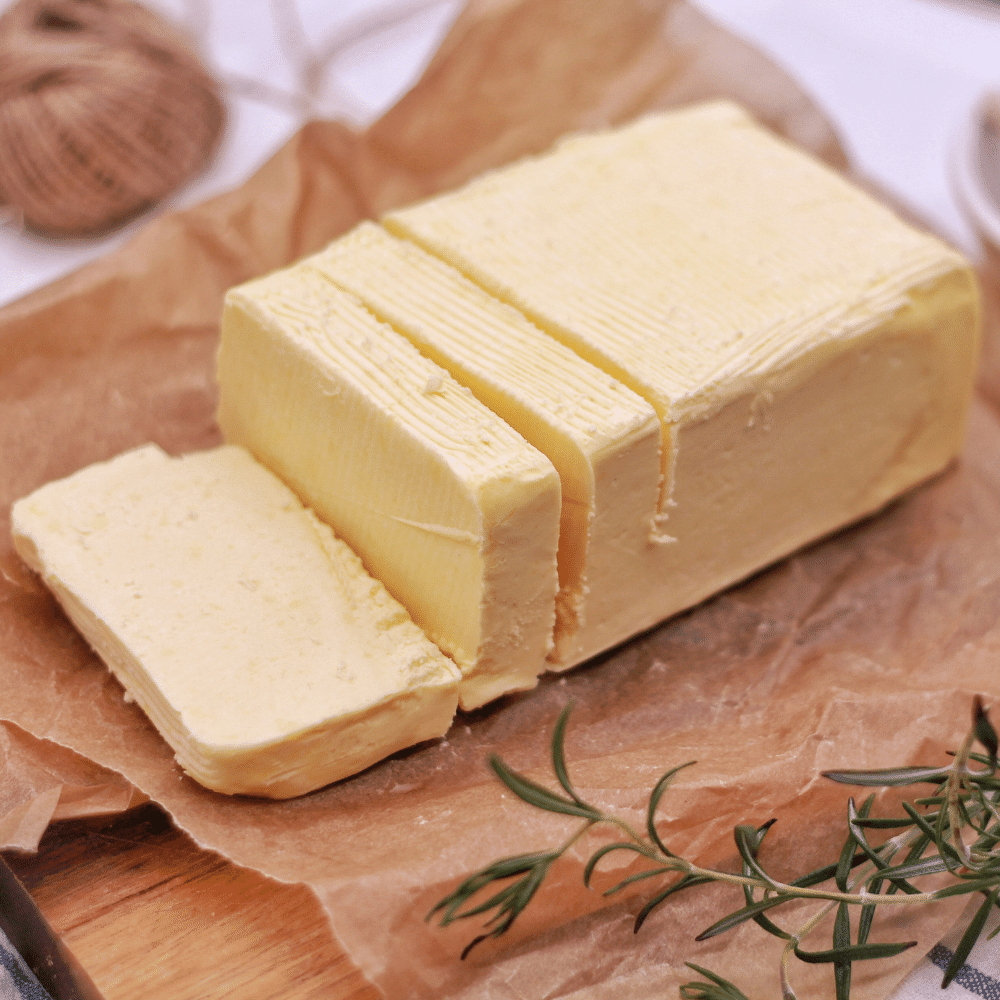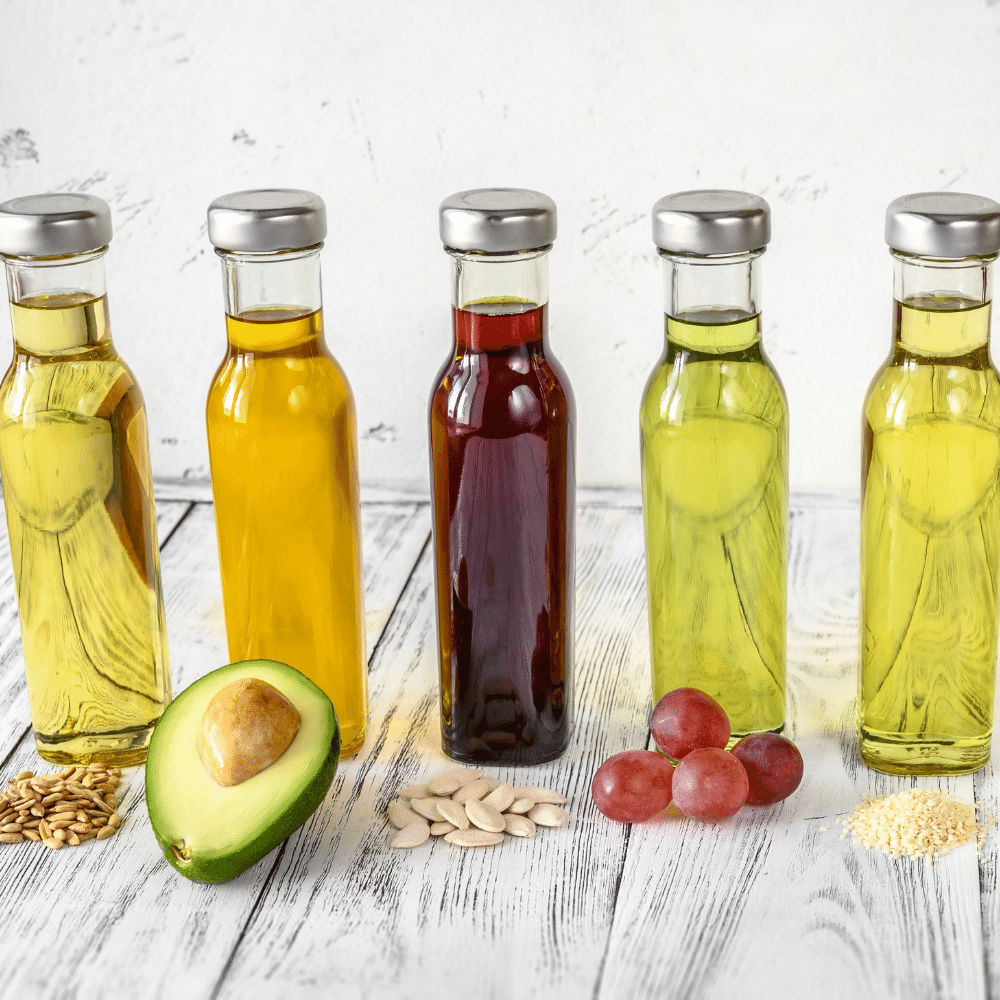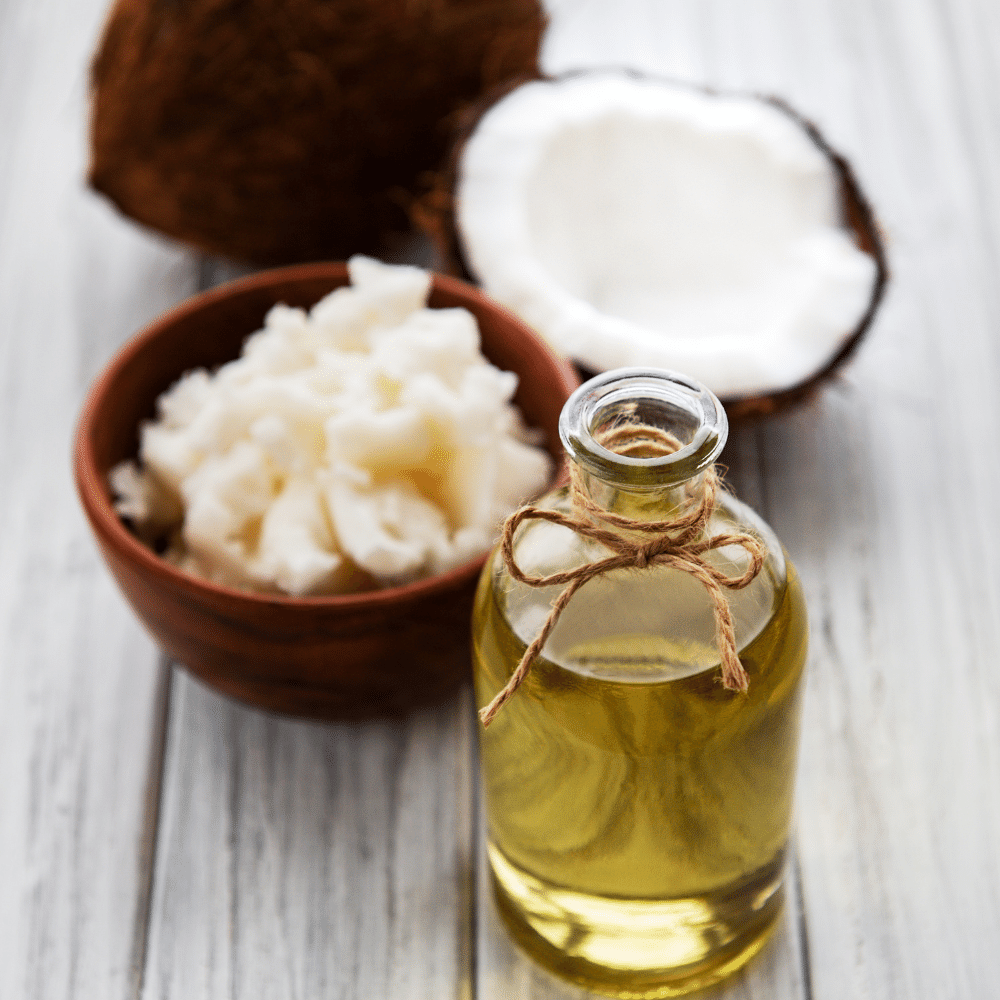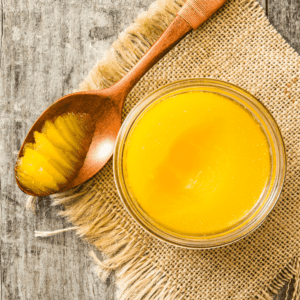Have you ever heard of ghee?
Ghee is a type of clarified butter that is popular in Indian cuisine.
It has a nutty and slightly sweet flavor, making it an ideal choice for adding richness to curries, stews, and other dishes.
But what do you do when you don’t have access to ghee or want to avoid using it due to dietary restrictions?
Thankfully, there are plenty of substitutes that can be used as alternatives.
In this article, I will discuss the 6 best substitutes for ghee so that you can still enjoy delicious meals without compromising on taste or nutrition.
What is Ghee?

Ghee is a clarified butter that originated in India.
It is made by slowly simmering butter until all the water evaporates and the milk solids separate from the fat, leaving behind a golden-colored oil with a rich, nutty flavor.
Ghee has been used for thousands of years as an essential ingredient in Ayurvedic medicine and cooking.
As it does not contain any dairy proteins or lactose, it can be safely consumed by those who are lactose intolerant or have certain food allergies.
Additionally, due to its high smoke point (485°F), ghee can be cooked at higher temperatures than other oils without breaking down into free radicals which can cause damage to cells.
Ghee also contains fatty acids and vitamins which provide numerous health benefits.
The 6 Best Substitutes For Ghee
If you’re looking for a substitute for ghee, there are plenty of options out there.
Here we look at six alternatives that can provide the same flavor and texture as ghee:
1 – Sunflower Oil

Sunflower oil is a popular ingredient in cooking for many reasons—it imparts flavor, it has a high smoke point, and its neutral flavor profile helps other ingredients to shine.
When it comes to using in cooking, sunflower oil is often used as an alternative to ghee.
Sunflower oil has a much higher smoke point than ghee; if you’re looking for something that won’t burn or scorch your dish from prolonged exposure to heat, then this may be the best option.
Additionally, since it’s neutral, highly refined brands of sunflower oil also offer up similar health benefits of unsaturated fats at a fraction of the cost of ghee.
2 – Butter

Butter has been a popular ingredient in cooking for many centuries, beloved for its rich and creamy flavor.
It’s generally used as an all-purpose fat, making it ideal for adding richness and depth to any dish from soups and stews to cakes and pies.
When it comes to cooking, butter is often more versatile than other types of fats like olive oil or coconut oil due to its high smoke point.
This means that you can heat them up higher before they start burning which makes them great options for sauteing or baking.
Compared to ghee, which is simply clarified butter without the milk solids added back in, regular butter gives dishes a unique richness that cannot be replicated with ghee alone since it lacks the proteins found in dairy butter.
Therefore, when using fats purely for flavor purposes (as opposed to health benefits), stick with good old-fashioned butter!
3 – Vegetable Oil

Vegetable oil is becoming increasingly popular in cooking due to its affordability and versatility.
It has a neutral flavor, so it won’t change or alter the taste of recipes that you make.
Unlike other oils such as olive oil or sunflower oil, vegetable oil has a higher smoke point which makes it suitable for deep-frying and stir-frying dishes without releasing any toxins into food.
This also means that it can withstand high temperatures better than ghee can without boiling off.
Since it’s an all-purpose cooking ingredient, vegetable oil also works well when baking cakes, breads, and even some savory dishes like casseroles or stews since these foods often require baking at high temperatures.
Vegetable oil might be the best alternative if you are looking for an affordable cooking option with mild flavors but still need something to cook your food at higher temperatures without changing the flavor profile too much.
4 – Coconut Oil

Coconut oil is one of the most popular ingredients used in cooking because it can stand up to high temperatures, making it one of the most versatile oils out there.
Coconut oil has a creamy texture and nutty flavor that pairs well with other foods, dishes, and baking recipes.
As compared to ghee, coconut oil would be an ideal choice for vegan or dairy-free recipes.
It can also be used for all types of cooking – from sautéing vegetables, as a spread on toast or even as added deliciousness in sweet treats like cakes or cookies.
Additionally, coconut oil works especially well when replacing butter in many dishes since its richness gives food just the right hint of sweetness.
5 – Soybean Oil

Soybean oil, compared to other cooking oils, has a neutral flavor and low smoke point.
This makes it an ideal ingredient to cook with because it can handle high temperatures and won’t overpower your dishes.
It’s extremely versatile since you can use it for almost any dish including baking, grilling, sautéing, stir-frying, or even for salad dressings.
That versatility doesn’t end when you replace the soybean oil with ghee in recipes either.
Ghee is still versatile but more subtle in comparison which leads most chefs to recommend its use as an accompaniment rather than as the replacement for soybean oil.
For instance, if you’re already sautéing vegetables, adding a spoonful of melted ghee at the end creates added depth while maintaining the crispiness from frying without canceling each other out like some duo vegetable combinations might experience when cooked together or within close proximity of each other (e.g., bok choy & cauliflower).
6 – Olive Oil

Olive oil is a popular ingredient in cooking, prized for its distinct taste and wide-ranging uses.
It has a mild sweetness, making it great to use as an alternative to heavy cream or butter when baking.
For example, you can substitute olive oil and nut milk for these ingredients instead of ghee when vegan baking – it still makes things moist, rich, and creamy like regular dairy.
Furthermore, black olives are perfect additions to salads or pasta dishes due to their saltiness which balances out the other flavors in the dish.
Because of this balance, they bring out other flavors brilliantly while singing with harmony – far more than ghee ever could!
Olive oils have a medium smoke point so they’re great for roasting vegetables or even stir fry recipes.
Last but definitely not least: Olive oil pairs well with just about any kind of food be it meat or fish dishes that come off the grill – another advantage over ghee here!
Conclusion
In conclusion, there are many substitutes for ghee that are suitable for a variety of different recipes and dietary needs.
Sunflower oil, butter, vegetable oil, coconut oil, soybean oil, and olive oil are all excellent alternatives to ghee and can add flavor, moisture, and richness to dishes.
Each of these options has its own unique benefits, so it’s best to consider which type of oil is best suited for the dish you’re preparing.
With these options, you can enjoy delicious meals without compromising on taste or nutrition.

The 6 Best Substitutes For Ghee
Ingredients
- Sunflower Oil
- Butter
- Vegetable Oil
- Coconut Oil
- Soybean Oil
- Olive Oil
Instructions
- Pick your favorite substitute from the list above.
- Follow cooking directions for your selected substitute with the proper ratio of ingredients.
Hi, I'm Benjamin. I love cooking, long walks, and my girlfriend! Here you’ll find simple and delicious recipes that you can make in 30 minutes or less.

